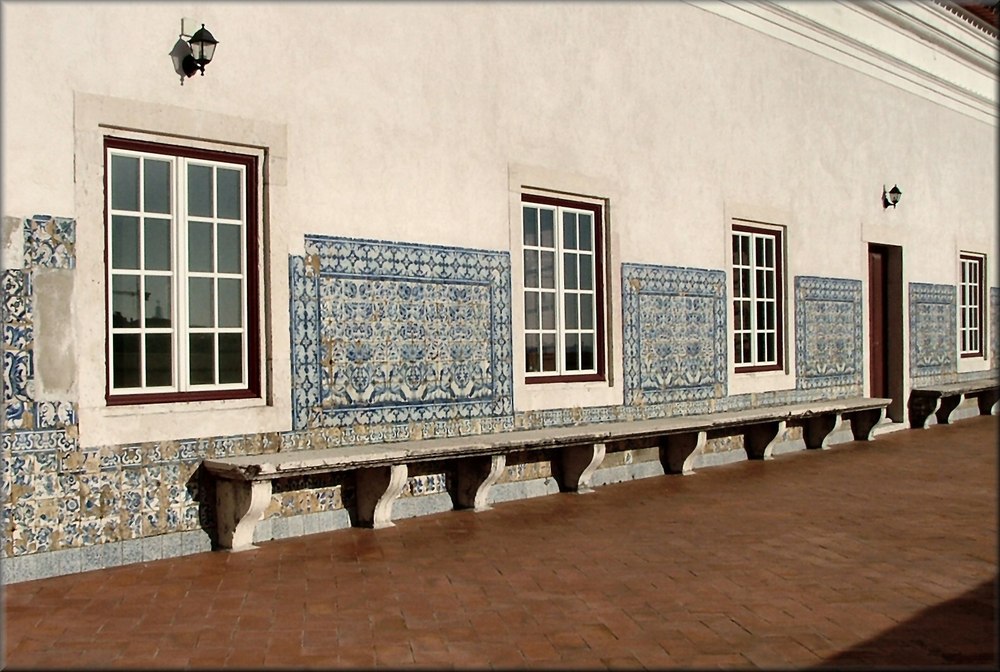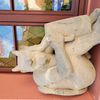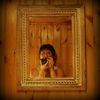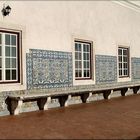Panchine
The Church or Monastery of São Vicente de Fora meaning "Monastery of St. Vincent Outside the Walls" is a 17th century church and monastery in the city of Lisbon. It is one of the most important monasteries and mannerist buildings in the country. The monastery also contains the royal pantheon of the Braganza monarchs of Portugal.
The original Monastery of São Vicente de Fora was founded around 1147 by the first Portuguese King, Afonso Henriques for the Augustinian Order. The Monastery built in Romanesque style outside the city walls, was one of the most important monastic foundations in mediaeval Portugal. It is dedicated to Saint Vincent of Saragossa, patron saint of Lisbon, whose relics were brought from Algarve to Lisbon in the 12th century.
The present buildings are the result of a reconstruction ordered by King Philip II of Spain, who had become King of Portugal (as Philip I) after a succession crisis in 1580. The church of the monastery was built between 1582 and 1629, while others monastery buildings were finished only in the 18th century. The author of the design of the church is thought to be the Italian Jesuit Filippo Terzi and/or the Spaniard Juan de Herrera. The plans were followed and modified by Leonardo Turriano, Baltazar Álvares, Pedro Nunes Tinoco and João Nunes Tinoco
Die Kirche oder Kloster von São Vicente de Fora im Sinne
von "Kloster von St. Vincent vor den Mauern" ist ein aus
dem 17. Jahrhundert Kirche und das Kloster in der Stadt
Lissabon. Es ist eines der wichtigsten Klöster und
manieristischen Gebäude des Landes. Das Kloster enthält
auch das königliche Pantheon der Könige von Portugal
Braganza.
Das ursprüngliche Kloster von São Vicente de Fora wurde um
1147 durch die erste portugiesische König, Afonso Henriques
für den Augustiner-Orden gegründet. Das Kloster im
romanischen Stil außerhalb der Stadtmauern errichtet, war
einer der bedeutendsten Klöster im Mittelalter Portugal. Es
ist dem Heiligen Vinzenz von Saragossa, dem Schutzpatron
von Lissabon, dessen Reliquien wurden aus Algarve nach
Lissabon im 12. Jahrhundert brachte gewidmet.
Die jetzigen Gebäude sind das Ergebnis einer Rekonstruktion
von König Philipp II. von Spanien, der inzwischen König von
Portugal (als Philip I) nach einer Reihe Krise im Jahr 1580
bestellt hatte. Die Kirche des Klosters wurde zwischen 1582
und 1629 erbaut, während andere nur Klostergebäude aus dem
18. Jahrhundert fertig waren. Der Autor der Gestaltung der
Kirche wird angenommen, dass der italienische Jesuit
Filippo Terzi und / oder der Spanier Juan de Herrera sein.
Die Pläne wurden verfolgt und von Leonardo Turriano,
Baltazar Alvares, Pedro Nunes Tinoco und João Nunes Tinoco
geändert
( Vielen Danke Erwin Frei )
22 February 2012

































NiCiLiIn 23/08/2024 7:34
Absolut top!Gruß Nicanne_wolf_60 08/04/2024 22:04
Schöne Perspektive und sehr stimmig! LG Annesmokeonthewater 18/03/2024 23:53
Ich sehe die blauen Kacheln und weiss, dass es Portugal ist.LG Dieter
motyl117 29/01/2024 16:13
Sehr schöne Aufnahme von einer Kachelwand . Liebe GrüßeFotoFlori 26/01/2024 18:02
Ein toller Blickwinkel auf auf die wunderschöne Fliesenwand mit der historischen Bank.Sehr interessant die mitgegebenen Informationen.
VG Renate
Jifasch32 25/01/2024 20:55
Superbe diagonale ComplimentsJF
noblog 23/01/2024 21:54
Klasse in Bild und Info !LG Norbert
a. segura 2 21/01/2024 14:34
bella fachada,saludosAstrid Hg 19/01/2024 6:48
Eine wunderschöne Aufnahme dieser kunstvollen Kacheln.Vielen Dank, Vitoria für den informativen Begleittext.
Liebe Grüße und ein schönes Wohenende
Astrid
Karl Josef Klein 18/01/2024 17:49
Portugal ist bekannt für große Fliesenkunst. LG Karl JosefRixo 16/01/2024 20:21
Danke für die Geschichte und die typischen Fliesen!Iris Herzog 16/01/2024 17:25
Eine ganz feine Perspektive.LG Iris
Blula 16/01/2024 6:15
... und an der Fliesenkunst erkennt man sofort Portugal.LG Ursula
SINA 15/01/2024 16:58
Ganz schönIn der Blickführung
Perspektive
Im Licht und das Motiv
Ich mag das Bild sehr !!!!!!!
Karin.M 15/01/2024 16:31
Wunderschöne Kachelkunst aus Portugal! Danke für Deine Aufnahme und aufwendige Beschreibung! liebe Grüsse Karin